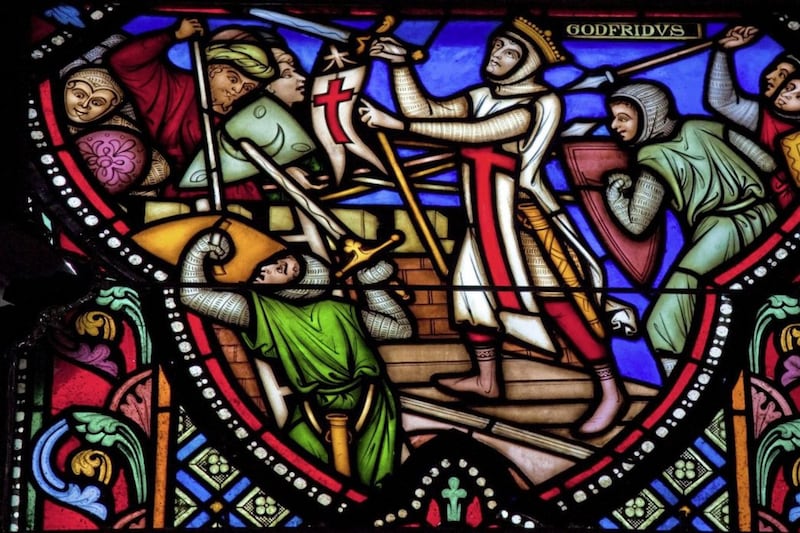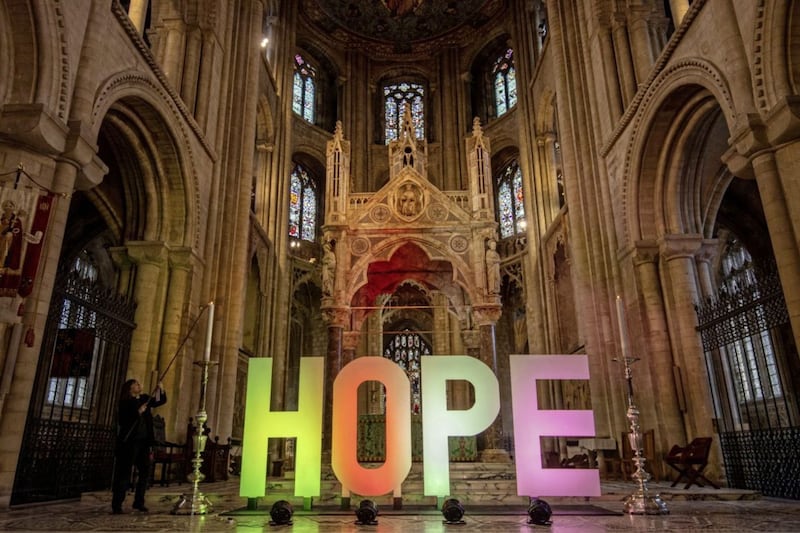
ALMOST 80 million people worldwide have been forcibly displaced from their homes, 26 million of whom are now refugees. Around half of these are under the age of 18.
As we reflect on Christmas and stand on the edge of a new year, it is well worth remembering that Jesus was a refugee.
This isn't a lefty, liberal, 'snowflake' interpretation of the Gospels. The UN describes refugees as "people who have fled war, violence, conflict or persecution and have crossed an international border to find safety in another country".
In Matthew's Gospel, King Herod "is about to search for the child, to destroy him". As a result, Mary and Joseph leave with their infant child Jesus and "flee to Egypt".
On December 28, we commemorated the male infants who were killed by King Herod during this search with the Feast of the Holy Innocents.
Here, we have a family who are forcibly displaced from their homeland due to fear of violence and persecution.
There is no doubting that this is the dictionary definition of a refugee; a family who fled to a jurisdiction that wasn't under King Herod's rule in order to seek safety.
Unfortunately, neither this nor the teachings of Pope Francis are enough to convince many Christians to care for refugees and migrants.
The journey Jesus and his family faced is incredibly similar to the arduous and sometimes fatal journeys made by refugees in the here and the now
Pope Francis has been incredibly clear on this topic. During Donald Trump's presidency, he announced that people who think only of building walls and not of building bridges cannot be called Christian.
Trump, for his part, labelled Pope Francis "disgraceful" for offering his opinion on this topic.
He had pledged to allow only 15,000 refugees into the United States in 2021, a record low.
Fortunately, in an address to the Jesuit Refugee Service less than a week after becoming president-elect, Joe Biden announced that he would raise this to 125,000.
Biden told the Jesuit Refugee Service that "every society is ultimately judged by how we treat those most in need", an outlook shared by Pope Francis.
In the past, the Pope has spoken of his "concern about the signs of intolerance, discrimination, and xenophobia" which are "motivated by fear and distrust of the different, the stranger, the other".
Pope Francis says this "fear deprives us of the ability to encounter the other, the person different from myself; it deprives me of an opportunity to encounter the Lord".
Most damningly for those of us who profess faith in the Church, Pope Francis is particularly saddened "by the observation that these reactions are not absent from our Catholic communities".

The "fear and distrust" that Pope Francis warns of certainly exists in the public at large; for example, a recent YouGov poll found that almost half of the UK public lacks sympathy for migrants crossing the Channel from France.
This lack of sympathy is despite the fact that Priti Patel reportedly told MPs that migrants are making this crossing because they fear torture at the hands of French police who are described as "a law unto themselves" by the charity Care4Calais.
YouGov also found that almost half (46 per cent) of the public feels that the UK has "done more than our fair share to accommodate refugees". A further 19 per cent thinks the UK has "done about our fair share to accommodate refugees".
This painfully isn't so. If we take Syria as an example, people often ask: "Why can't neighbouring countries take them in?"
Neighbouring countries do take them in, and in remarkable numbers; 30 per cent of Lebanon is made up of Syrian refugees, while Syrian refugees account for 6.5 per cent of Jordan's population.
For comparison, 0.08 per cent of the north's population is made up of Syrian refugees.

Despite this, graffiti reading "Syrians not welcome" was recently daubed on a wall in Portrush.
Indeed, the UK takes in fewer refugees than many other European countries. In 2015, the average EU country processed 260 asylum applications per 100,000 local population; the UK processed 60 per 100,000.
While half of the UK public has little or no sympathy for migrants crossing the Channel, Pope Francis explicitly asks us to tend to these people. In June of this year, he bestowed a new title unto Mary: 'Comfort of Migrants'.
And when speaking to a General Audience in January, he compared St Paul's journeys across the Mediterranean to those taken by refugees and migrants today in search of a better life.
"Today, the sea on which Paul and his companions were shipwrecked is, once again, a dangerous place for the lives of other sailors," he said.
"All over the world, migrant men and women face risky voyages to escape violence, to escape war, to escape poverty."
In Matthew's Gospel, King Herod 'is about to search for the child, to destroy him'. As a result, Mary and Joseph leave with their infant child Jesus and 'flee to Egypt'
Pope Francis reminded the audience that Paul faced similar problems to today's migrants, noting that "many times they don't allow them (Paul and his companions) to dock in ports".
But when Paul all those years ago and migrants in the here and now reach land, Pope Francis tells us they experience a "rare humanity" that is distinct from the violence and hardship of the waters.
In a 2019 address on World Day of Migrants and Refugees, the Pope said "the logic of the Gospel is that the last come first".
This "logic" is clearly evidenced in the Parable of the Sheep and the Goats, where Jesus reminds us of how we ought to treat the most vulnerable among us: "For I was hungry and you gave me food, I was thirsty and you gave me drink, I was a stranger and you welcomed me."
Jesus was a refugee in every sense of the word and he urged us to tend to the stranger and the outcast.
The journey he and his family faced is incredibly similar to the arduous and sometimes fatal journeys made by refugees in the here and the now.
So this Christmas season, let us remember that we are celebrating the birth of a refugee.
And as we face into 2021, let us also be mindful of the many refugees in our world today, and of Jesus' and Pope Francis's clear instructions on how we ought to treat them.
Diarmuid Pepper is a broadcast journalist with Northern Sound News who previously worked as a Philosophy and Religious Studies teacher.








